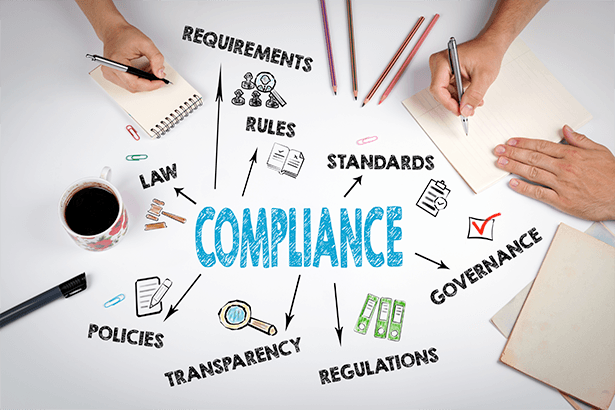
Do you have questions about EDI retailer compliance standards? If you do, you're definitely not alone.
But if you're working with a full-service EDI provider, you should expect to get human expertise and robust software that ensures you meet the compliance standards of your retail trading partners. In other words, no fouls.
Here at eZCom, keeping clients compliant is Job #1. We take pride in the features built into our software that help our clients meet the standards of their trading partners , and we back it up with uncommon human expertise among the members of our Support team.
What does EDI compliance mean for brands?
For brands, vendor compliance means shipping orders according to the specific requirements of the retailer. While EDI is a standardized data format, each retailer will have slightly different rules and will revise them from time to time. Keeping up with these changes is called updating the mapping.
What makes an order not compliant with EDI standards?
When a vendor ships incorrectly—an ASN arrives late, the order goes to the wrong location, the GS1 has incorrect information—they are considered out of compliance with the retailer’s EDI standards. Depending upon the retailer, there is a range of reasons that may cause a brand to have an order that is considered out of compliance.
What happens when a brand or vendor has an order that is not EDI-compliant?
When an order fails to meet compliance standards, the retailer will issue chargebacks. These fees are considered compensation for disruption caused to the retailer’s supply chain. For example, the retailer may have stores without the necessary stock or could be forced to delay a shipment to a location. Obviously, these are costs that any brand wants to avoid as much as possible.
How can a brand be more confident about compliance?
For starters, ensure that the software that is used for EDI transactions has features like validation checks. Our Lingo software has what we call “double-validation checks” that prevents suppliers from sending a document with missing information.
Another important part of maintaining compliance is automation. The best EDI software reduces the amount of manual data entry by seamlessly sharing automation. Instead of forcing humans to copy-and-paste information, or deal with documents one at a time, an automated approach processes documents in batch for speed and accuracy.
Are chargebacks really a big deal?
Do you like money? Yes? Then yes, they are.
Okay, how big of a deal?
Chargebacks can do some serious damage to your bottom line. Retailers sometimes call them “expense offsets”—remember they’re your expenses. They add up, and major retailers are not reluctant to enforce them. They are operating in a hyper-competitive environment, and want to work with suppliers who will deliver as promised.
Imagine if you sell $10 million worth of goods to retailers and incur chargebacks 1% of the time. You just took $100,000 out of your bottom line. Ouch.
Does EDI compliance affect retailer relationships?
Of course.
Beyond the financial hit you take from chargebacks, compliance is crucial when it comes to nurturing profitable and financially rewarding relationships. No matter how amazing your product may be, if your retail trading partner is concerned about the ability of your company to meet their compliance standards, that relationship will be strained. Nobody wants to work with unreliable people or organizations, and your company’s ability to stay compliant indicates that you can be counted on.
How can I correct issues with EDI compliance?
First, examine how you process EDI transactions. Are you doing it yourself, using a separate portal for each retailer? Or are you using an outside provider?
Are you managing it yourself because you don’t want to pay a monthly fee to an outside provider? But incurring regular chargebacks? Then it’s time to consider if your in-house operation is an investment that’s costing you more than you imagine.
Are you working with a full-service provider but still getting too many chargebacks? Before you decide to bring EDI in-house, examine the processes of your EDI provider. Is the software effective? Are the people helpful?
You have many options when it comes to choosing an EDI solution—some are better suited for your company than others.
Staying EDI-compliant should become part of your standard operating procedure. No matter how you approach it, you’ll foster better relationships and nurture a healthier bottom line when you do.






